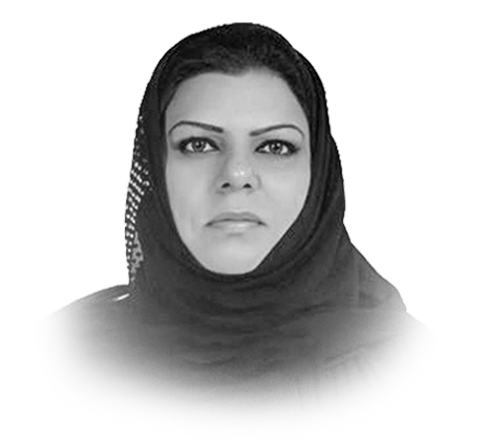The Pakistan–Saudi defense pact strengthens regional stability
The Strategic Mutual Defense Agreement signed between Pakistan and Saudi Arabia this month marked a watershed in Islamabad-Riyadh relations. The move will have a huge impact on regional stability and Muslim unity. The agreement stipulates that any act of aggression against one country will be considered aggression against both. While the wording is simple, the implications are profound. It is a reaffirmation of our historic ties with Saudi Arabia but also the elevation of our relationship into a formal framework of joint deterrence.
Pakistan and Saudi Arabia have long enjoyed bonds that transcend ordinary diplomacy, rooted in faith, history, and a shared sense of responsibility for the Muslim world. Over the decades, Saudi Arabia has stood by Pakistan in times of economic hardship, providing vital oil facilities on deferred payments and generous financial assistance. In return, Pakistan has extended its military expertise, training Saudi officers, conducting joint exercises, and deploying personnel to safeguard the Kingdom’s security. Since 1967, Pakistan has trained more than 8,200 Saudi armed forces personnel.
There has been much speculation in Western media regarding the strategic agreement’s supposed nuclear dimension. Analysts have questioned whether Pakistan is extending a nuclear umbrella to Saudi Arabia. Let us be clear: the strategic military agreement is not a nuclear-sharing agreement. It focuses on conventional cooperation, joint training, technology, and intelligence. It should be remembered that both Pakistan and Saudi Arabia are responsible countries committed to non-proliferation norms. That said, Pakistan’s nuclear status lends the agreement an unavoidable strategic weight. The pledge to employ “all military means” introduces a measure of ambiguity that could act as a powerful deterrent against aggression.
For Islamabad, the agreement bolsters its geopolitical relevance. It enhances Islamabad’s bargaining position in regional and international forums, signaling that Pakistan remains indispensable in the security calculus of the Muslim world. For Riyadh, it secures the partnership of one of the largest and most capable Muslim militaries, thereby reinforcing its deterrent posture at a time of heightened insecurity in the Gulf. The symbolism is powerful: two leading Muslim states committing to defend each other in the face of external aggression. Pakistan’s performance in the recent war against India has already demonstrated to the world that its armed forces are second to none. This battlefield credibility enhances the weight and meaning of the defense pact.
Pakistan’s nuclear status lends the agreement an unavoidable strategic weight.
Sehar Kamran
This agreement must also be seen as part of a broader continuum of Muslim unity. The 1974 Islamic Summit in Lahore hosted by then Prime Minister of Pakistan Zulfiqar Ali Bhutto, laid the intellectual and political foundations of a Muslim alliance, bringing together leaders of the Islamic world in an unprecedented demonstration of solidarity. That spirit is now being translated into action through frameworks like the Pakistan–Saudi defense pact, which reflects the continuing aspiration of the Muslim world to act collectively in the face of external threats.
The foresight of Saudi Crown Prince and Prime Minister HRH Mohammed bin Salman— emphasizing no compromise on the safety, security, sovereignty, and stability of the Kingdom— and the leadership of Pakistan’s armed forces have been instrumental in shaping this pivotal moment. Field Marshal Asim Munir has earned admiration at home and abroad for the way he has handled difficult strategic situations. His ability to lead from the front, to combine firmness with restraint, and to establish Pakistan’s deterrence posture with clarity has reassured allies and deterred adversaries. Pakistan’s military diplomacy has undoubtedly contributed to the confidence with which Islamabad has entered into this agreement with Riyadh.
The pact also raises broader questions about the possibility of creating a Muslim security framework. Iran has already welcomed the Pakistan–Saudi agreement, framing it as a potential starting point for a regional security system free from foreign interference. If carefully nurtured, such cooperation could indeed evolve into a structure that brings together more countries under a framework of collective security.
Moving forward, Pakistan must approach the implementation of this agreement with clarity and caution. Joint training, intelligence sharing, maritime cooperation, and counter-terrorism exercises are natural areas of collaboration. At the same time, we should also focus on other areas of mutual interest and benefit like technology transfers, defense co-production, and investment in Pakistan’s military-industrial base. For Pakistan, this agreement is an opportunity to reaffirm our role as a responsible, reliable, and sovereign partner in the Muslim world. It is also a test of our ability to balance solidarity with prudence. The Pakistan–Saudi defense pact could mark the beginning of a new era in Muslim-world security cooperation, one in which Pakistan plays its rightful role at the center of regional peace and prosperity. Our friendship with Saudi Arabia is beyond question.
-The writer is a Member of the National Assembly of Pakistan and a patron in chief of the Centre for Pakistan and Gulf Studies.
Disclaimer: Views expressed by writers in this section are their own and do not necessarily reflect Arab News’ point-of-view
